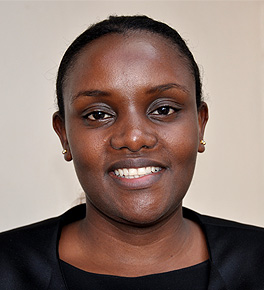OUR FELLOWS

OUR FELLOWS
Lillian Wambua grew up in the arid Makueni district of eastern Kenya, where a few goats, chickens, and cattle were her family’s most important assets. “The sandy and stony land, although vast, was largely unproductive,” she says. “Unable to count on growing food crops, our livestock were the key to our livelihood.” Often, the family would have to sell a goat or a cow to pay the children’s school fees. In high school, she loved history and English but knew her career would be in the sciences. “During my undergraduate studies, I realized that DNA technology holds promise to tackle many problems, including livestock diseases.”
The sandy and stony land, although vast, was largely unproductive,” she says. “Unable to count on growing food crops, our livestock were the key to our livelihood.” Often, the family would have to sell a goat or a cow to pay the children’s school fees
Field of Research
Studying the disease burden at the livestock-wildlife interface in East Africa and developing robust diagnostic tools to facilitate continuous surveillance, early detection, and interventions against devastating epidemics in dryland pastoral areas.
Fellows Stories
Lillian Wambua: ILRI Livestock Scientist Among Top African Women Awardees
Date: August 23, 2011

‘As a little girl, growing up in the arid Makueni District of Kenya’s Eastern Province, my family’s few goats, chicken and humped zebu cattle were the most important assets we had. The sandy and stony land although vast, was largely unproductive. Unable to count on growing food crops, our livestock were the key to our livelihood. The same holds true for rural populations across much of the African continent. Livestock are essential to their wellbeing.’
